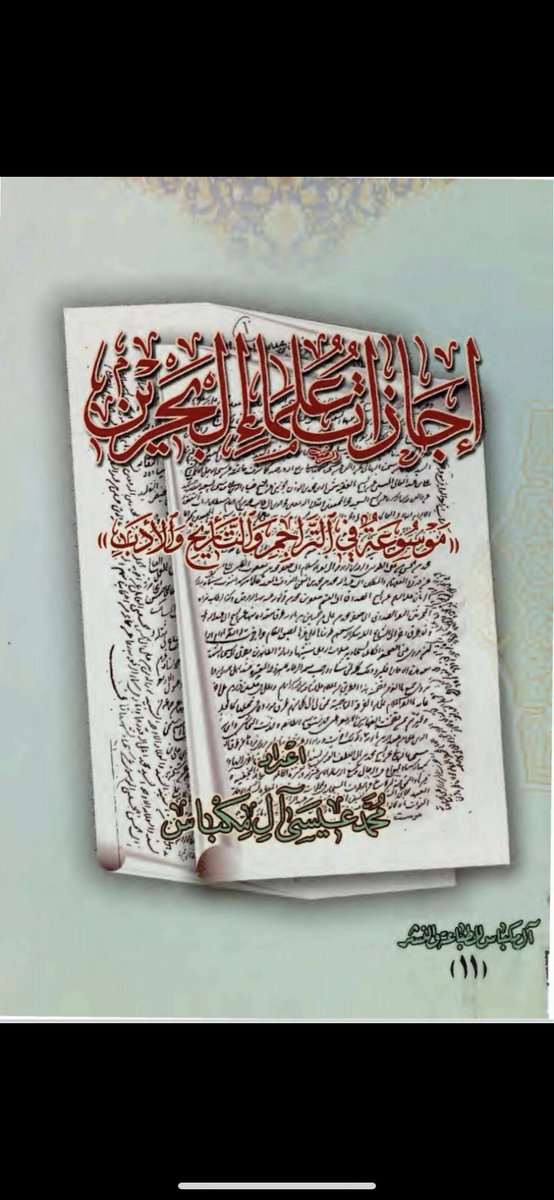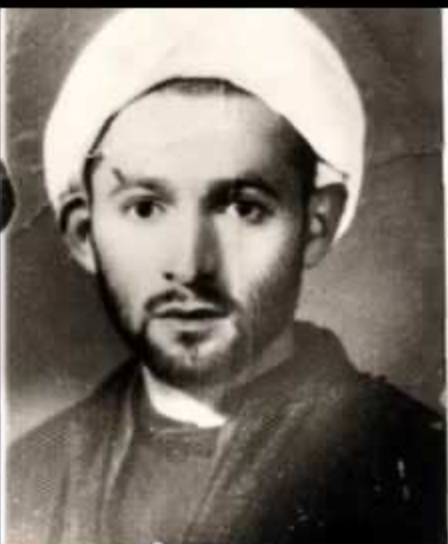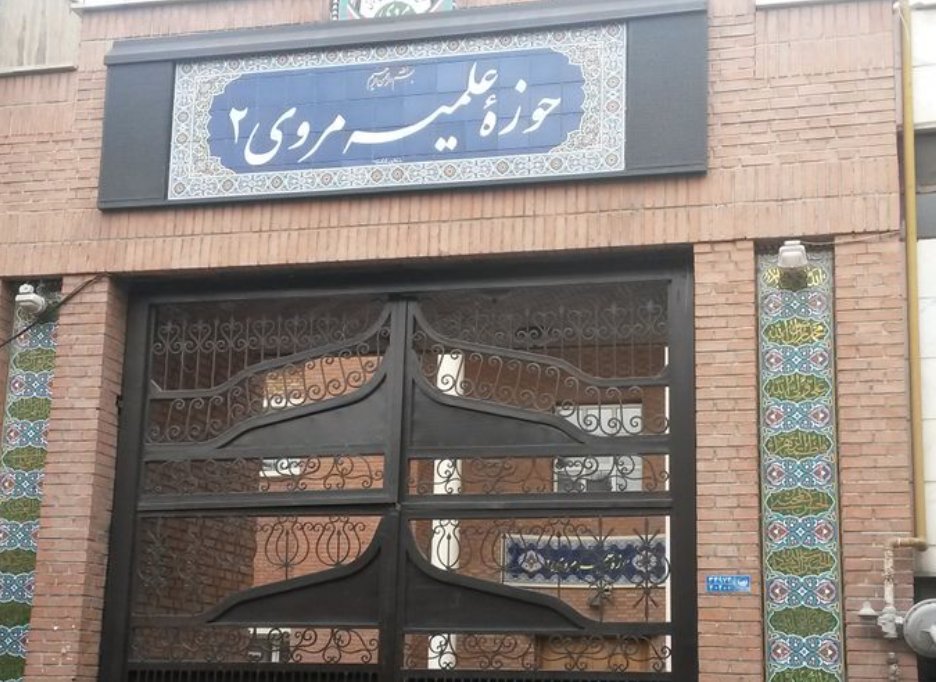#Ijazat are critical licenses to teach and transmit texts given by a teacher to a disciple and constitute highly useful sources for the intellectual historian working on #ShiiTheology and this is one recent collection #Najaf 1/ 

This work is published by Dar al-turath attached to the shrine in #Najaf and they are doing some excellent work on texts, authors, archival documents, and bibliographies 2/
The author, son of a prominent scholar Muhammad Taqi Aqa Najafi Isfahani (d. 1914), is a useful guide to the networks of scholarship in the shrine cities of #Iraq and their links into #Iran and further as well as #Shiiconstitutionalism #ShiiTheology iranicaonline.org/articles/aqa-n… 3/
The work is particularly useful for late #Safavid scholarly networks and their transmission to the #Qajar period and covers the range of disciplines from #jurisprudence to #philosophy #ShiiTheology 4/
This is the #ijaza of Sayyid Abdullah, the grandson of #SayyidNimatullahalJazairi (d. 1701) to some students of his region in the marshes between #Iraq and #Iran which not only mentions texts but also includes an intro on the importance of the #ijaza genre 5/ 

Late Safavid and after scholars often put together an #ijaza_kabira which mentions all the authors in a chain back to the early generations and hence provided a history of the #Shii scholarly tradition - #Majma’_al_ijazat is like an #ijaza_kabira sources for #ShiiTheology 6/
In the 18thC such an #ijaza_kabira was often called a #thabat (I have seen manuscript copies from the #Khatunabadi family), a #mashyakha (an older genre) and #fahrasa in North Africa 7/
Two good articles on the #ijaza are Robert Gleave on the #Akhbari Yusuf al-Bahrani (d. 1776) to Sayyid Mahdi Bahr al-'ulum (d. 1797) a copy of which is cited in #Majma_al_ijazat tandfonline.com/doi/abs/10.108… 8/
the other piece is Sabine Schmidtke, 'The ijaza from 'Abd Allah b. Salih
al-Samahiji...' in F. Daftary & J. Meri eds. Culture and Memory in Medieval
Islam: Essays in Honour of Wilferd Madelung, London: Tauris, 2003, pp. 64-85 9/
al-Samahiji...' in F. Daftary & J. Meri eds. Culture and Memory in Medieval
Islam: Essays in Honour of Wilferd Madelung, London: Tauris, 2003, pp. 64-85 9/
Googling I found a post from H-MEM that I put together 16 years ago on #ijazat lists.h-net.org/cgi-bin/logbro… 10/
This is another #ijaza to #Bahralulum from the philosopher and biographer #AbdalNabiQazwini author of #TatmimAmalalAmil 

For those interested in #ShiiTheology in #SouthAsia here is the #ijaza from #BahralUlum to Sayyid Dildar Ali Nasirabadi (d. 1820) 11/ 

There are many collections of #ijazat - here is one that shows the importance of #EasternArabia historical #Bahrayn for #ShiiTheology 12/ 

Incidentally if you’re interested in the scholarly traditions of #Bahrayn #ShiiTheology follow the #telegram channel of #MuhammadAlialHirz t.me/harzma 13/
• • •
Missing some Tweet in this thread? You can try to
force a refresh

















